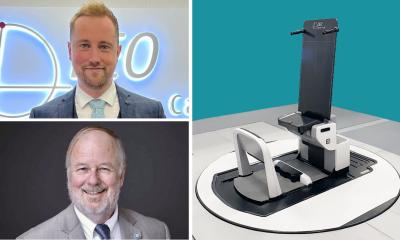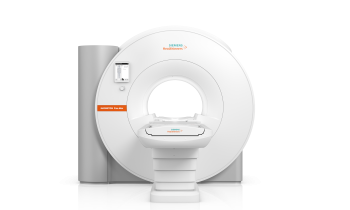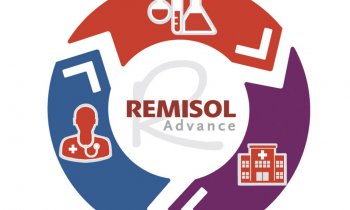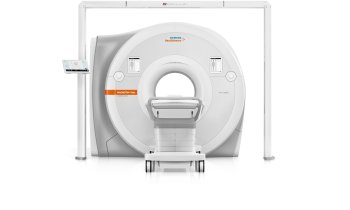Article • Patient communication in oncology
“Be accepted”: A new tool to support radiologists and female cancer patients
Informing a patient about a cancer diagnosis is never an easy task. To equip radiologists in that delicate scenario, an Austrian patient has developed a solution that will help them break the bad news as smoothly as possible and put women on the right track right from the start of their patient journey.
Report: Mélisande Rouger
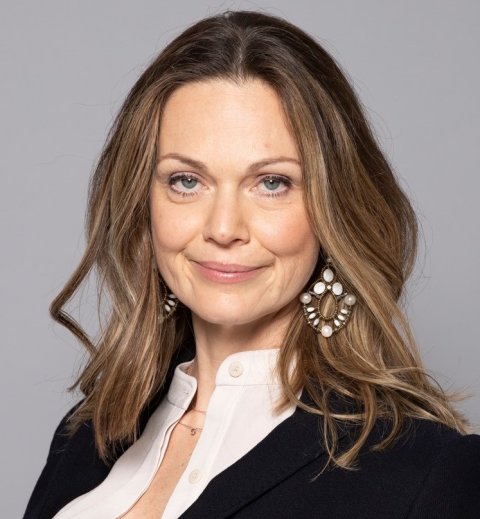
Image source: ESR
The new tool, called “Be accepted”, was presented in a round table discussion organized by the European Society of Radiology Patient Advisory Group (ESR PAG) at the ECR Overture in March. The product, which has received the full support of the ESR, is an information campaign, with resources in printed and online form. It is designed as a comprehensive source of relevant information for patients who have been diagnosed with cancer, Caroline Justich, the project founder, explained. ‘”Be accepted” contains information that is filtered, scientifically proven and summarised in one medium, to enhance the life of both patients and radiologists,’ she explained.
Supporting the healing process
Justich, a long-time member and now chair of the ESR PAG, was diagnosed with stage 4 breast cancer in 2016, when she was 39. She explained how knowing the needs of both cancer patients and radiologists inspired her to develop the project to support other women in that situation. Recalling the time when she received the cancer diagnosis, she acknowledged the support she got from her radiologist, Professor Michael Fuchsjäger. The Professor of Radiology and Chairman of the Department of Radiology at the Medical University of Graz, Austria, and Chairman of the ESR Board of Directors not only caught his patient in her first shock, but also prepared her for the next steps and equipped me with the right mindset. ‘He told me this would be a rollercoaster ride and my job was to put my focus on the end of the ride, and believe my journey through it will be ok,’ she said. ‘It took ten seconds of his time – for me, it changed the game.’ Thanks to her radiologist’s support, Justich was able to accept her diagnosis and put her focus on where her energy should flow to: recovery.
Recommended article
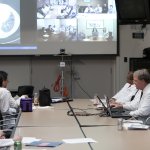
News • Patient empowerment
Should cancer patients participate in tumour conferences?
The goal of tumour conferences is to determine the best treatment for patients with complex cancers – however, the patient is rarely present. Now, a team of researchers has investigated whether cancer patients can benefit from participating in these meetings.
However, not all patients who are in “free fall” after the life-changing diagnosis can rely on such support. “Be accepted” was designed for female patients to withstand the initial shock and support patients’ physical and mental wellbeing by providing access to basic information, answers to the most important questions, and the latest peer-reviewed studies in the field. Using “Be accepted” right from the start after receiving a cancer diagnosis will help women come to terms with their disease, visualise their goals and act to achieve them, Justich explained. ‘When they are given their diagnosis, patients are often not able to take in the information,’ she said. ‘That’s why we launched the project, to build resilience from the very first moment and support the healing process. For radiologists, it delimits the time for and optimises communication and helps them put the patient on the right track.’
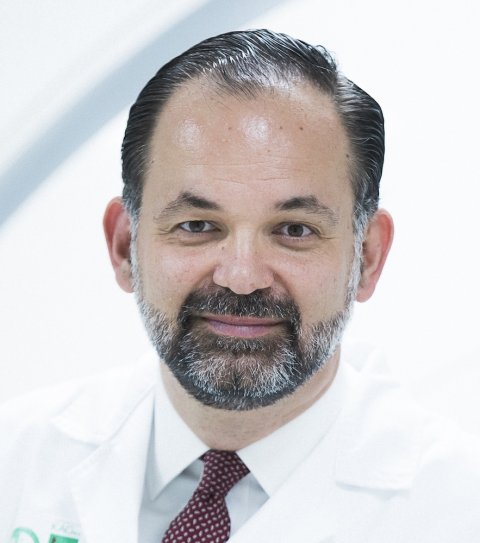
Image source: ESR
‘”Be accepted” is mainly for our patients, but also for us radiologists,’ added Prof Fuchsjäger. Every cancer diagnosis puts patients on a roller coaster ride, he explained, so it is of great importance to have them focus on the exit, rather than the arduous journey. ‘As radiologists, we’re here right from the start, beginning with screening where we detect cancer until the end where we just do follow-up.’
A tool for value-based radiology
“Be accepted” is aligned with the ESR’s position on value-based radiology, an approach that looks at the benefits for patients and society by providing radiology services. The ESR has published a number of landmark papers on the topic, the latest of which was in the Journal of the American College of Radiology in 2021. ‘One way to measure value-based radiology for the ESR is the relationship between patients and radiology personnel,’ Fuchsjäger said. ‘We need to offer patients instructions for different examinations, distribute customer satisfaction questionnaires and audit, and be available to talk to patients whenever requested.’
A patient friendly environment is important, he added. ‘We must be able to provide low-cost reading programs where patients can get in and be screened for major cancers.’ Radiologists can deliver value everywhere in the radiology chain, from selecting which imaging and other diagnostic tests to perform to the appropriate communication of the results. Having a tool that empowers patients and enhances communication right from the start can help make all the difference, he explained. ‘We want to have perfectly informed patients because this gives them perfect safety. We as radiologists are medical gatekeepers, we have to appreciate it and we can make all the difference at the beginning of the patient’s therapeutic journey,’ he concluded.
“Be accepted” will launch on July 15th during ECR 2022 in Vienna.
Profiles:
Caroline Justich is an active member of the ESR Patient Advisory Group and a regular speaker at the ECR. Together with her partner Judith Tscheppe, she founded and published “Be accepted”.
Michael Fuchsjäger is Professor of General Radiology and Chairman of the Department of Radiology at the Medical University Graz, Austria. His clinical work and research are dedicated to diagnostic and interventional breast radiology, with a focus on minimally invasive therapy. He serves on various committees for national and international radiology and senology societies, first and foremost the European Society of Radiology, where he is the current President, as well as Chair of the Programme Planning Committee for the ECR 2021. Furthermore, he is a member of the executive boards of the European Society of Breast Imaging, the Austrian Roentgen Society, and the Austrian Society of Senology. Professor Fuchsjäger is a member of the editorial boards of several radiology journals, including Radiology and European Radiology. He has published more than 60 peer-reviewed scientific manuscripts, review articles, and book chapters, and has also presented more than 400 educational lectures at radiology conferences worldwide.
05.05.2022





